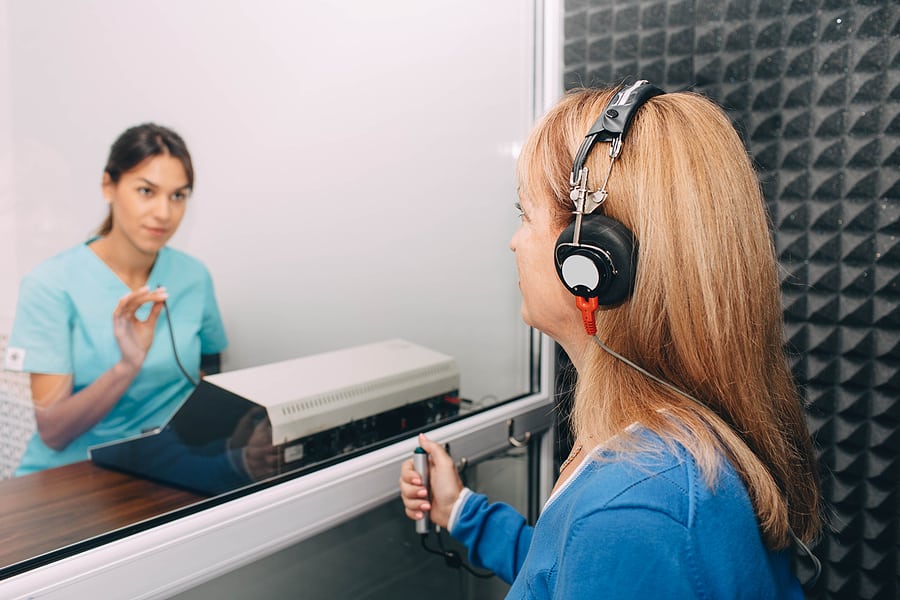Ensuring optimal hearing is essential for maintaining a high quality of life. Hearing is crucial to our general well-being, so it is important to pay utmost attention to it. We will explore why scheduling routine hearing evaluations should be vital to your healthcare routine.
Why do Hearing Check-ups Matter?
Like any other bodily function, our hearing capabilities may naturally decline. Often, this decline goes unnoticed until it significantly affects our daily lives. Regular hearing check-ups can help detect issues early, enabling timely intervention and treatment. Early diagnosis of hearing loss is crucial, as it allows healthcare professionals to provide appropriate solutions and prevent many accompanying challenges.
- Prevent Social Isolation and Mental Health Concerns
Hearing difficulties can have a profound impact on our social interactions, leading to feelings of isolation and even depression. Regular hearing evaluations can identify and address potential hearing loss, ensuring the necessary steps are taken to maintain healthy communication and relationships. By assisting with hearing aids or other devices, these check-ups can help improve your overall quality of life, both socially and emotionally.
2. Preserve Cognitive Abilities and Brain Health
Research has shown a correlation between hearing loss and cognitive decline, including conditions like dementia and Alzheimer’s disease. By monitoring your hearing abilities, professionals can identify any deterioration and suggest appropriate interventions to mitigate the risks associated with cognitive decline. Regular check-ups can help preserve brain health, enabling you to stay mentally sharp and engaged throughout your life.
3. Enhanced Safety and Independence
Imagine not hearing important sounds such as car horns, alarms, or smoke detectors. Regular hearing check-ups ensure that you have full situational awareness, reducing safety hazards and promoting independence. Early identification of hearing issues allows for better management and implementation of necessary safety measures, such as hearing assistive devices, ultimately safeguarding your well-being in various environments.
4. To Take Control of Your Hearing Health
Regular hearing check-ups empower you to take control of your auditory health. By establishing a baseline for your hearing abilities and tracking any changes over time, you can make informed decisions regarding prevention and treatment options. Moreover, being aware of your hearing status allows you to adopt lifestyle adjustments that promote better hearing habits, such as protecting your ears from excessive noise exposure.
Signs that You Need Regular Hearing Checkups
To be safer regarding your hearing, you must go for regular checkups. However, there are certain signs you must always watch out for before scheduling an appointment with a healthcare professional.
- Inability to keep up with conversations
Difficulty following conversations, particularly in noisy environments. When you find it difficult to follow up on conversations in a noisy location, you may need to schedule a check with a healthcare professional.
2. Frequently asking others to repeat themselves
Asking a speaker to repeat himself frequently may signal a regular checkup for your hearing. This could indicate an outlying problem in your hearing, especially when the speaker believes he’s loud and audible enough.
3. Struggling to hear on the phone or understand speech on television or radio
Difficulty catching up with conversations on the phone or other devices may indicate a sign to visit a healthcare professional for a checkup.
4. Feeling like others are mumbling or not speaking clearly
If you struggle to hear what others are saying or discussing, or it is difficult to comprehend high-pitched sounds or whispers, it may be the right time to visit a healthcare professional.
5. Turning up the volume on electronic devices to excessive levels
Turning your devices louder before you can hear what is playing could signal a time to see a healthcare professional for a hearing checkup.
6. Avoiding social situations or withdrawing from conversations
Trying to avoid conversation at a social gathering could mean you have problems with hearing.
7. Noticing a decline in overall hearing ability
If you feel there is a decline in your overall ability to hear a sound from humans or objects, you may have issues with your hearing.
Conclusion
In conclusion, regular hearing check-ups are vital in maintaining healthy hearing and overall well-being. By preventing the negative impact of hearing loss on various aspects of our lives, these evaluations ensure timely interventions, provide essential support, and help manage potential complications. Prioritizing regular hearing check-ups is a proactive step towards enjoying life’s sounds for years to come.


